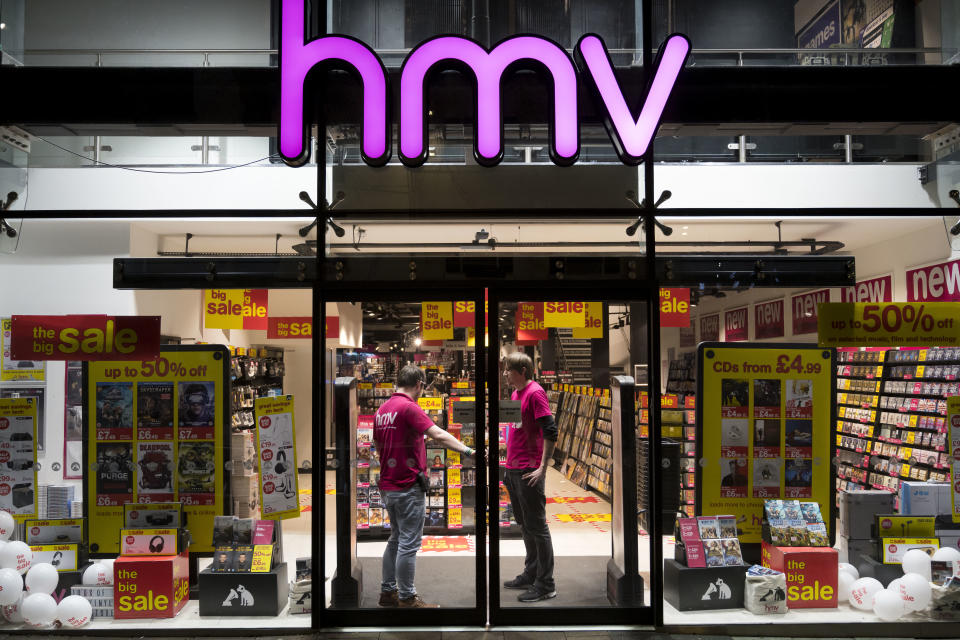How HMV's collapse could spell trouble for the rest of the UK high street

Thousands of jobs are at risk following the collapse of HMV, but there could be more trouble for the rest of the high street if it disappears completely.
Intu (INTU.L), the property group which owns some of Britain’s most prominent shopping centres such as Lakeside in Essex and the Trafford and Arndale centres in Manchester, is landlord for 15 of HMV’s locations. That was the highest exposure to HMV of any group according to a report in the Times.
The group has been under pressure this year with troubles on the high street and the collapse of a proposed takeover from real estate rival Hammerson (HMSO.L) in November, and in HMV’s absence may not be able to cut rents for other retailers in distress. Other landlords could face similar problems.
HMV stores have not yet closed, but anyone with vouchers have been asked to use them expediently, highlighting the possibility of imminent closures. A bid from a potential buyer could rescue some or all of the group. However, should HMV close 2,000 staff jobs would be at risk, and 128 stores could shutter.
The 15 stores that HMV have at Intu properties are worth £3.3m of the £546m gross rent earned by the shopping centre group each year. That is a sizeable proportion, but it is not the only pressure on the business.
READ MORE: US banks tell staff to move or lose jobs after Brexit
In November this year, Debenhams shareholder Mike Ashley, who owns House of Fraser and Sports Direct (SPD.L), warned that businesses could be “smashed to pieces” by one of the worst Novembers on record for high street retailers ahead of tough Christmas conditions. He had attempted to drive down rents at Intu centres for four of his House of Fraser branches.
Intu refused his demands, and in turn Ashley threatened to withdraw 17 of his stores from the company’s locations.
An Intu spokesman told the paper: “We have been working closely with HMV in recent months to help them to relocate to smaller, more cost-effective units.” This too would reduce the income from a major figure on the high street, passing on cost pressures to an under-pressure sector.
The collapse of HMV could now put pressure on Ashley and the rest of the high street, already experiencing a drop in footfall of 3.1% on Boxing Day, according to retail analysts Springboard.
Intu clients include other high street names under pressure. In December, Primark’s owner Associated British Foods (ABF.L) warned of challenging trading conditions “in a tough retail market.” Restaurant Group’s (RTN.L) £559m takeover of Wagamama saw its share price punished, and Game Group (GMD.L) has already found itself bankrupt before. All rent sites from Intu.
If the music retailer disappears completely, or if it is partially salvaged and demands a cut in its rental obligations to remain a going concern, then Intu may have little choice but to acquiesce – and their will be even less room for the company to accommodate requests for discounts from other clients. That could lead to a domino effect of suffering among both landlords and companies.

 Yahoo Finance
Yahoo Finance 
